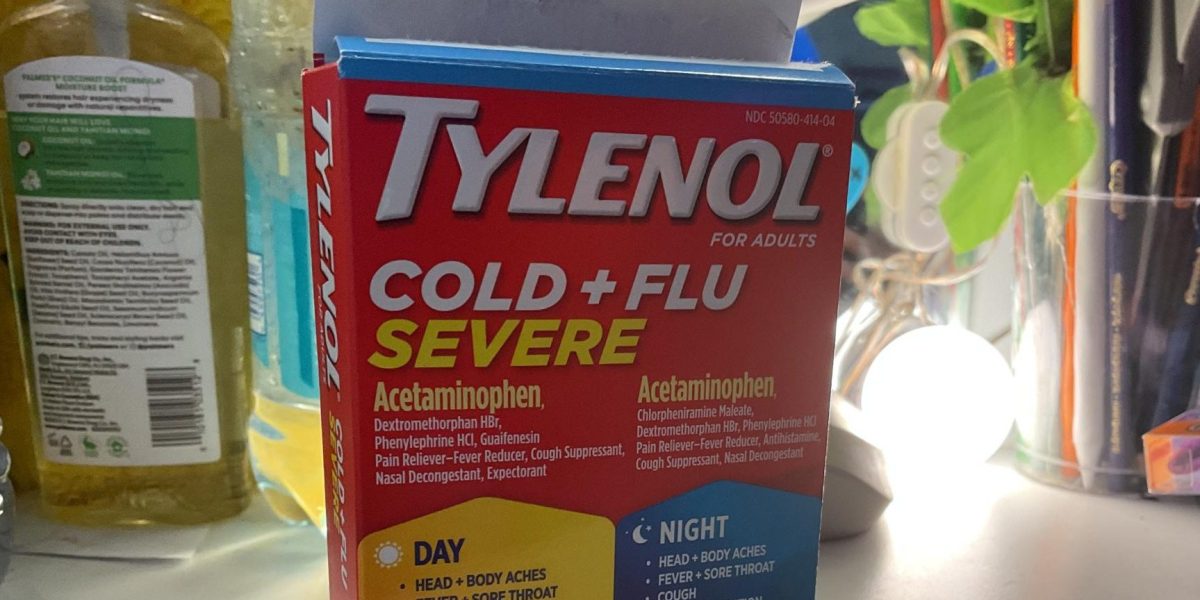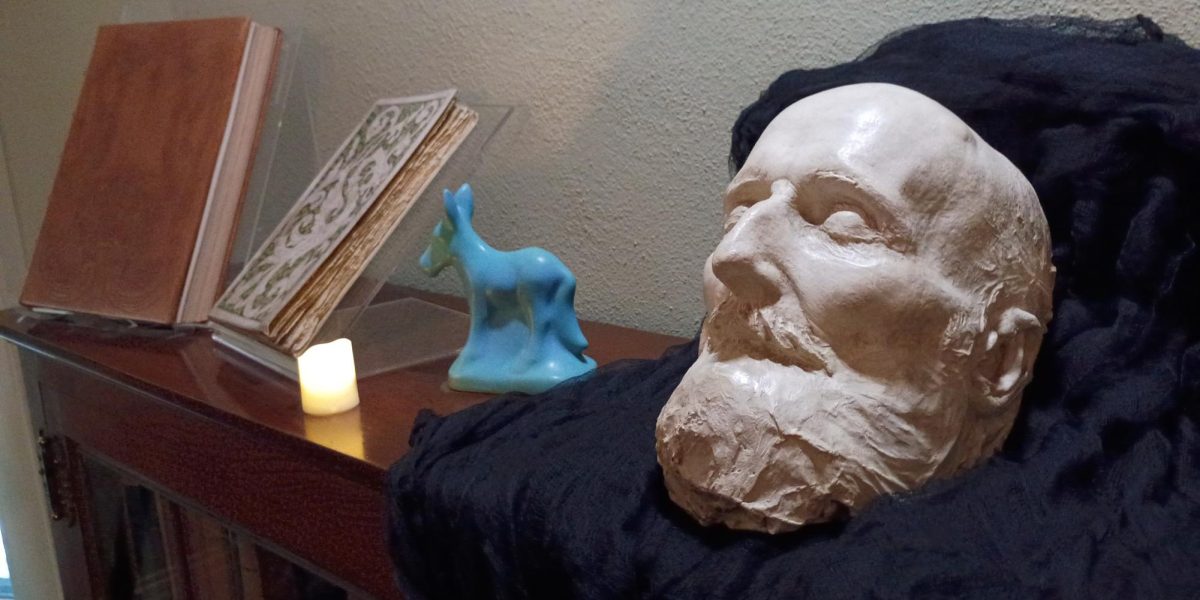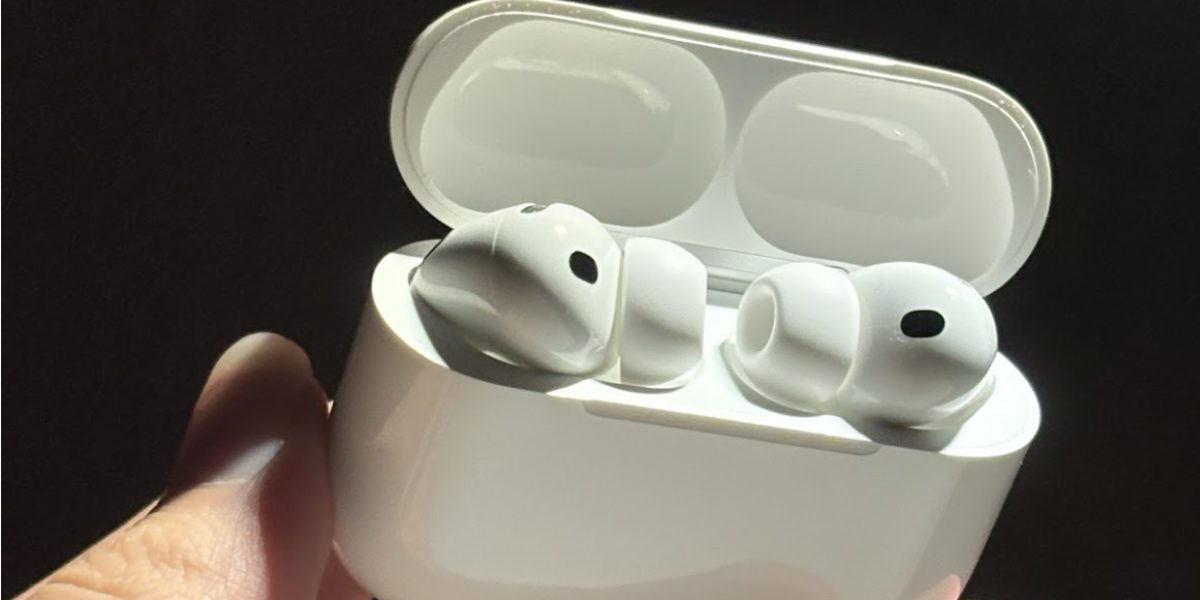
Freshman Felicity Hampton takes a warm shower every morning and uses a fruity body wash that exfoliates her skin and a shampoo that gives her hair the slight scent of a tropical island. After she dries off, she puts on jeans and a T-shirt fresh out of her closet and hits each of her armpits with a swipe of deodorant. She finally dabs a little bit of fragrance on her wrists and then does three sprays on her legs and her torso before going to school. She puts time into smelling nice and hygienic, which is why she gets very frustrated when her nose is later attacked while sitting in class near someone who doesn’t.
“I encounter someone who smells bad every day. It’s sad. I want to give them hygiene products or something like that, but not with rude intentions though.”
There’s no gentle way of putting this: you stink. Boy stink. Girls stink. All teens stink. The problem isn’t that you stink: the problem is that many of you (many of you freshmen specifically) can’t manage your stink right, so we all end up suffering.
Body odor—B.O.—occurs when a person sweats and that sweat gets eaten by bacteria on the skin. While sweat itself is odorless, bacteria use an enzyme called C-T lyase to eat the salt, water, and fats contained in our sweat. After they’ve had their fill, this bacteria produces thioalcohol, which can be a powerful and unpleasant odor. This happens every time a person sweats, whether they are exercising, anxious, too warm, or have a condition that causes them to sweat a lot, such as obesity, ketoacidosis, or hyperhidrosis.
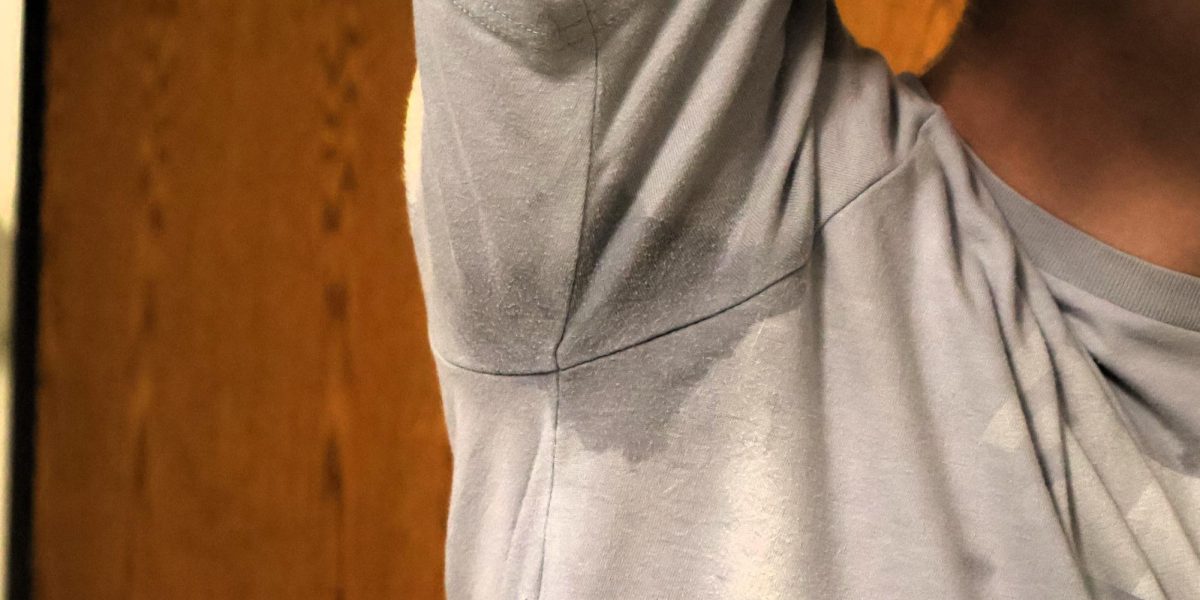
The Origins of Your Odor
But why do teenagers smell so bad? There are two big reasons: puberty and diet.
Body odor typically develops between 8 and 12 years old but becomes frequent and pungent in teenagers due to puberty. See, people have two types of sweat glands: eccrine and apocrine. Eccrine sweat glands are found pretty much everywhere on the body and are used to cool the body down when it gets too hot. This is the sweat on our palms and feet when we get nervous, and it’s very rarely stinky.
However, apocrine sweat glands are located by hair follicles and produce thicker sweat full of pheromones—this is the stinky type of sweat. Apocrine glands stay dormant until puberty when they are activated by hormones and develop alongside all the areas where we grow new hair during puberty, particularly the armpits and pubic region. That’s why your pits stink. And any time your hormones spike, like during ovulation, competition, or when you see your crush, the sweat gets stinkier.
Since the sweat in apocrine glands includes fats from the body, what we eat can define our stink. Junk food is a major dietary factor for teens in why they stink, as the chemicals used in processed foods and refined sugar increase bad odors. Spicy foods, onions, and garlic also ramp up the smell factors since they produce sulfuric compounds when broken down—this creates a rotting egg smell. Eating red meat and greasy food increases body odor because the body doesn’t break down all the fat, so some of that fat is forced out of the body through sweat. Teens also tend to forgo veggies, which actually decrease stinky sweat due to the compound chlorophyll (though broccoli and cabbage have sulfuric compounds that can make B.O. worse).
While we’re looking at diet, it would be remiss not to mention that sweat is the primary but not only source of teen stink. All the above foods (as well as fish, coffee, tea, and peanut butter) cause halitosis, or bad breath. Similarly, processed foods, refined sugar, fatty foods, chicken, eggs, broccoli, beans, onions, garlic, and dairy products are the culprit behind smelly farts.
You may be reading this and thinking in your freshman brain, “Hey! I don’t stink!” This is the cruelest truth of B.O.: you usually can’t smell your own stink. Studies show that the teenage brain doesn’t register certain smells as it’s rewiring itself to go from child brain to adult brain. While teen brains register the smell of gasoline and coffee just as well as adults (and can smell sugar better than adults), teens overwhelmingly have a nose-blindness to soap, smoke (which is why teens engaging in bad habits think their parents can’t smell smoke on them and then get surprised when they do), and sweat.
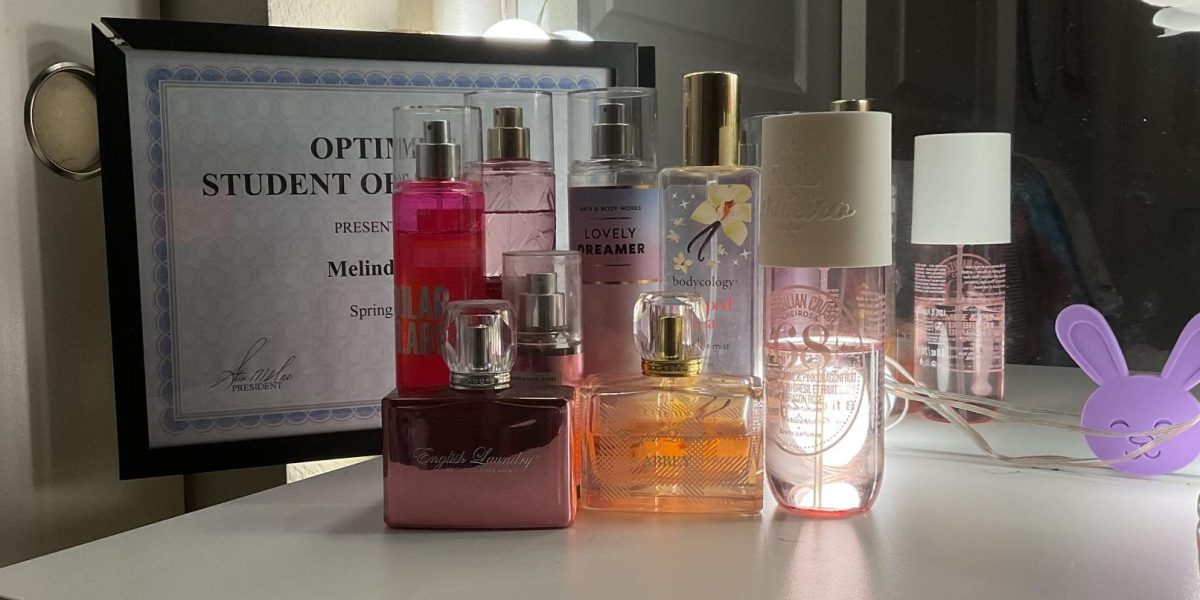
The Problem with Perfumes
Moreover, since puberty—and thus being stinky—is new to teens, most don’t know how to deal with it. The most popular solution, at least for freshmen, is to just cover their smell with a fruity perfume, musky cologne, or pungent body spray. However, this isn’t a good solution–it actually makes things worse.
Perfumes and colognes may smell good on their own, but when you spray them on yourself, they combine with your sweat to create a whole new smell, which can be worse than just the sweat by itself. Since teens also can’t usually smell their own sweat, they have no idea how much perfume or cologne to add and end up spraying way too much.
Sophomore Odette Noemi Cortes Calderon said this can happen a lot with underclassmen. “People should just use a certain amount of perfume or cologne and not be spraying a lot. It [has] made me sneeze a lot and gave me a really bad headache.”
Also, instead of targeting just the stinky areas of the body where the apocrine glands are, many freshmen spray themselves head to toe; not only does this mean they are using too much perfume or cologne, but these sprays bind with fats, and since puberty covers a teen’s skin with a thin fatty oil called sebum (the same stuff that creates acne), the spray sticks to teens far longer than it does on the adults that most of the perfumes and colognes are designed for.
Masking your sweat with perfume or cologne may also hurt your dating life. The entire purpose of apocrine glands pumping out stinky sweat is to spread pheromones, which are chemicals that can communicate to others through smell. While scientists aren’t sure if these pheromones can be detected by other humans and may be a vestigial process, there are some studies that indicate pheromone production helps people attract a suitable mate.
“I think it is attractive when someone smells good because that means that they care about how they smell around others and themselves,” freshman Rosa Gonzales said.
There is some evidence that male pheromones can make females find them more attractive, that female pheromones can make men happier, that pheromones with excessive cortisol (the stress hormone) excite the brain less than pheromones from low-stress (and more likely romantically minded) individuals, and that some pheromones may indicate the sexual orientation of a person. There is also evidence that men can sense from the pheromones of other men if they would be a friend or competitor, that pheromones can cause women living in close proximity to have synchronous menstrual cycles, and help all humans detect members of their own family.
If these scientists are right, then masking your natural sweat with perfumes and colognes can get in the way of getting close to others. Of course, just laying on a fragrance thick can do the same thing, as others can be really sensitive to those flowery or musky smells.
Sophomore Torin Fuqua has gotten many headaches from perfumes being sprayed in class. “It makes me feel irritated because it’s annoying to have so many different scents at once, and it gives me a headache.”
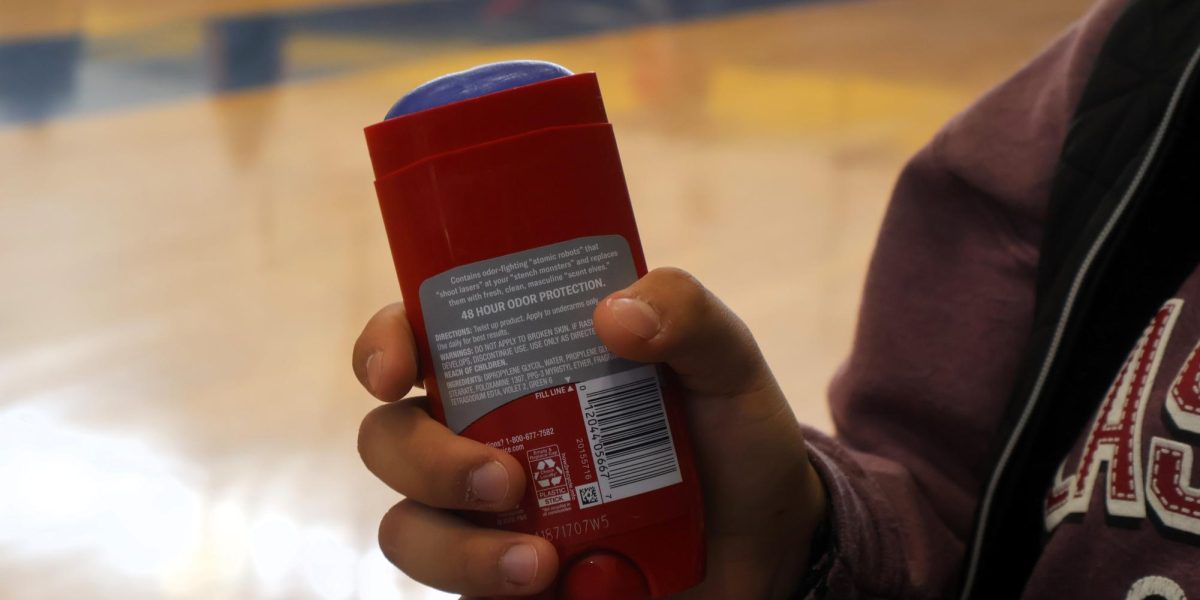
How to Actually Fix Your Funk
So if a quick spray isn’t the solution to stink, what are you supposed to do? Fortunately, fellow freshmen, the answer is simple: if stinky sweat is caused by bacteria and diet, then you just have to remove the bacteria and change your diet. Here’re some ways to do that:
Bathe every day: Unlike other age groups, who can bathe every two or three days, teens need to take a bath or shower every single day to remove the excess sweat and sebum caused by puberty. Make sure to wash with an exfoliating bar of soap or with some kind of washcloth or loofa to get rid of stuck-on oil and dead skin. Make sure you really scrub the areas where the apocrine glands hang out: your pits, your crotch, under your breasts and belly (if you have them), and your butt.
Girls, wash your hair: Girls (or guys with longer hair) should wash their hair at least every other day because your hair produces sebum and the length of your hair can make it feel oily and look greasy. Anyone with fine or very oily hair may even need to wash their hair daily, as do athletes that sweat more than normal or those that use a ton of hair product. Regular washing will also help prevent acne and ingrown hairs on your scalp, which is essentially the same as your forehead and can get painful breakouts just as frequently.
Use deodorant daily: Since your underarms are the primary source of your stink, apply some deodorant to them to fight B.O. The best time to apply deodorant is right after you bathe, as your pits will be bacteria-free; most deodorants work best when applied to dried skin, so make sure you towel off first. Keep in mind that not every deodorant (which prevents odor) is an antiperspirant (which uses aluminum compounds to prevent sweating) and that you will still sweat and have pit stains without antiperspirant. There is no scientific evidence that antiperspirant is bad for you, but you may get a rash if your skin negatively reacts with the aluminum or fragrance ingredients of your deodorant.
If you use perfume or cologne, only use a little: Your brain gets used to your own smell, so even if you don’t smell it, trust that others can. Never spray your perfume or cologne directly on your body—this makes it overwhelmingly strong. Instead, the proper way is to either mist or dab.
- Misting is done by spraying the air in front of you and walking through so the scent sticks to your hair and clothes. While misting is fine to do in your bathroom at home, it’s considered rude to do so in a class. While this is how most teens apply perfume and cologne, it is more ineffective and wasteful than dabbing.
- Dabbing is done by spraying a single spritz of scent on your wrist and dabbing it on your other pulse points: your neck, your other wrist, behind your ears, and (if sleeveless) the insides of the elbows. These places are naturally warmer, which helps spread the scent. Remember to dab, not rub: rubbing can “crush” the scent by masking it into the skin and cutting down its lifespan.
Select your own scent: Perfumes, cologne, body sprays, and even deodorant and scented soaps shouldn’t mask your natural scent—they are supposed to highlight your natural scent while suppressing gross bacteria smells. Since you know your own smell best, you should personally select any scents you put on your body and choose what you think you should smell like.
Change up your clothes: Sweat easily absorbs into our clothing, so wearing the same pants or hoodie several days in a row without washing or otherwise killing the bacteria will make you stinky even if you can’t smell it. Not only should you wear clean clothes each day, but if sweating is an issue for you, you should also wear loose, breathable clothing. This same logic applies to your sheets too: put a clean set of sheets on your bed each night to keep your body and your room from getting too stinky.
P.E.=P.U.: One common cause of sweat is exercise, and both kids and adults tend to have noticeable body odor after a P.E. class or playing a sport. The best thing to do after either kind of workout is to take a quick shower. If you cannot shower, at least reapply your deodorant (make sure your pits are dry first) and change your clothing. As workout clothes can easily get stinky, wash them at least once every week.
Brush your teeth and tongue: This tip has to do with bad breath more than B.O., but stink is still stink. You may know that you should brush your teeth twice a day, but did you know you need to brush your tongue too? At least once a day, apply toothpaste to your toothbrush or special tongue brush and very gently move the brush from the back of your tongue to the tip. You could also get a tongue scraper or use mouthwash to help remove the bad breath bacteria from your tongue.
Less junk food, more greens: Avoid the spicy and processed foods that cause body odor and eat green vegetables containing chlorophyll. A good rule of thumb is that if the food smells, you will smell after eating it. Also avoid caffeine, as this increases sweat production.
Drink lots of water: Sweat is mostly water, but if you are dehydrated, you still sweat. What you’re sweating though is a higher concentration of the salts and fats bacteria like to turn into stink. By staying hydrated, your sweat stays mostly water, which helps reduce the amount of food available for the stinky bacteria in your apocrine regions.
Be mindful of your meds: Medications change your body chemistry, which means that some meds can make you sweat more and some can even make you stink more, such as steroids, opioid-based pain relievers, and certain kinds of antidepressants. If you change medication and suddenly develop a rise in B.O., talk to your doctor.
Freshmen, you are in high school now, so you really need to start taking care of yourself. And if you are an upperclassman reading this, you should already be doing these things. Your stink doesn’t just affect you: it affects everyone around you, whether you reek of B.O. or too much spray. School is already awful for lots of us in lots of ways—waking up early, trying to keep up with work, not being able to use our phone or the bathroom whenever we want, and so on. By managing your body odor in the right way, you’re helping everybody out.


